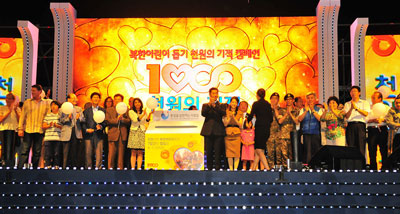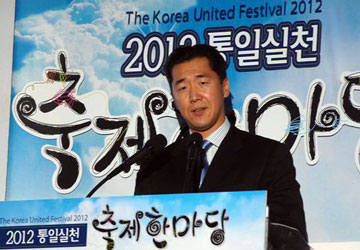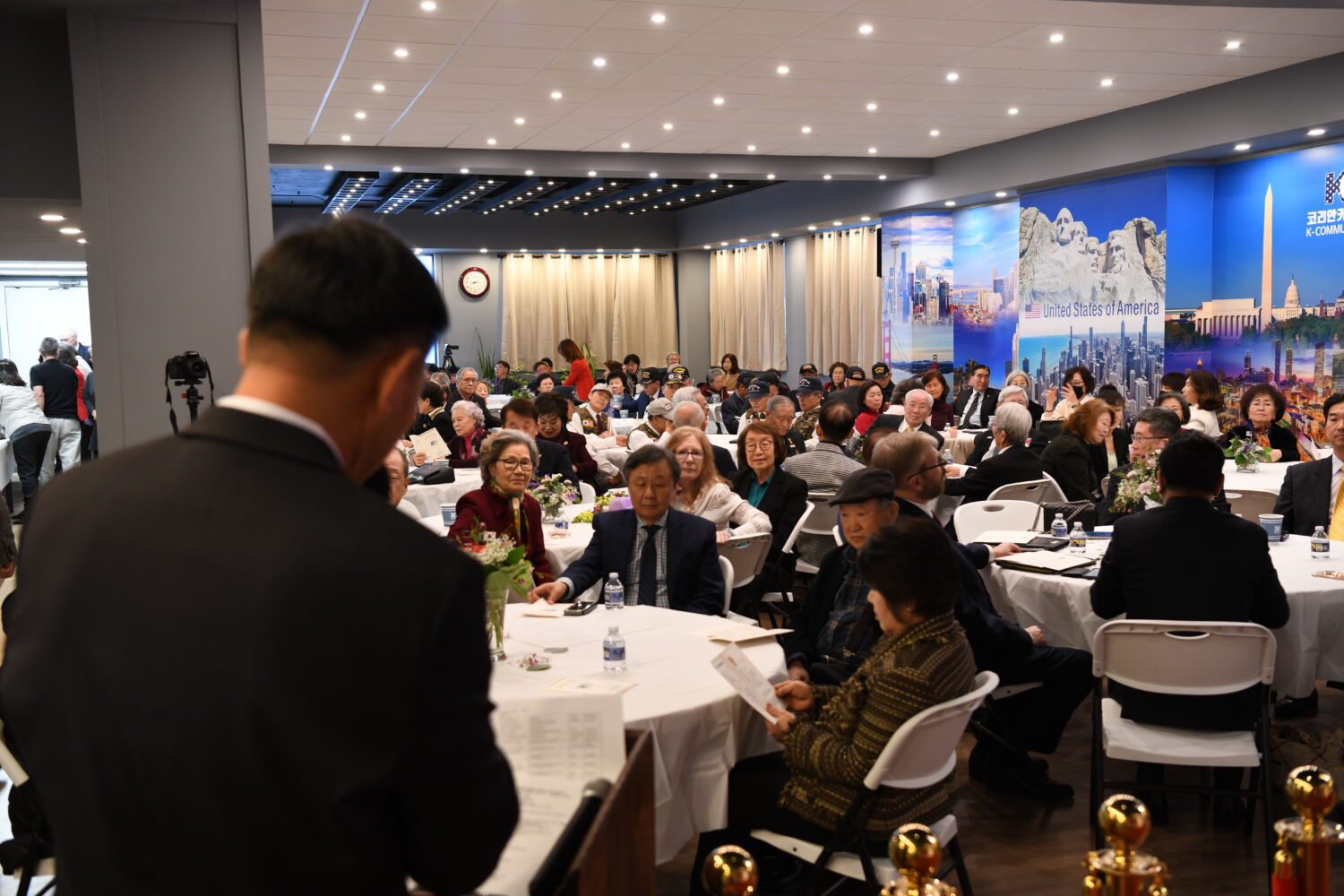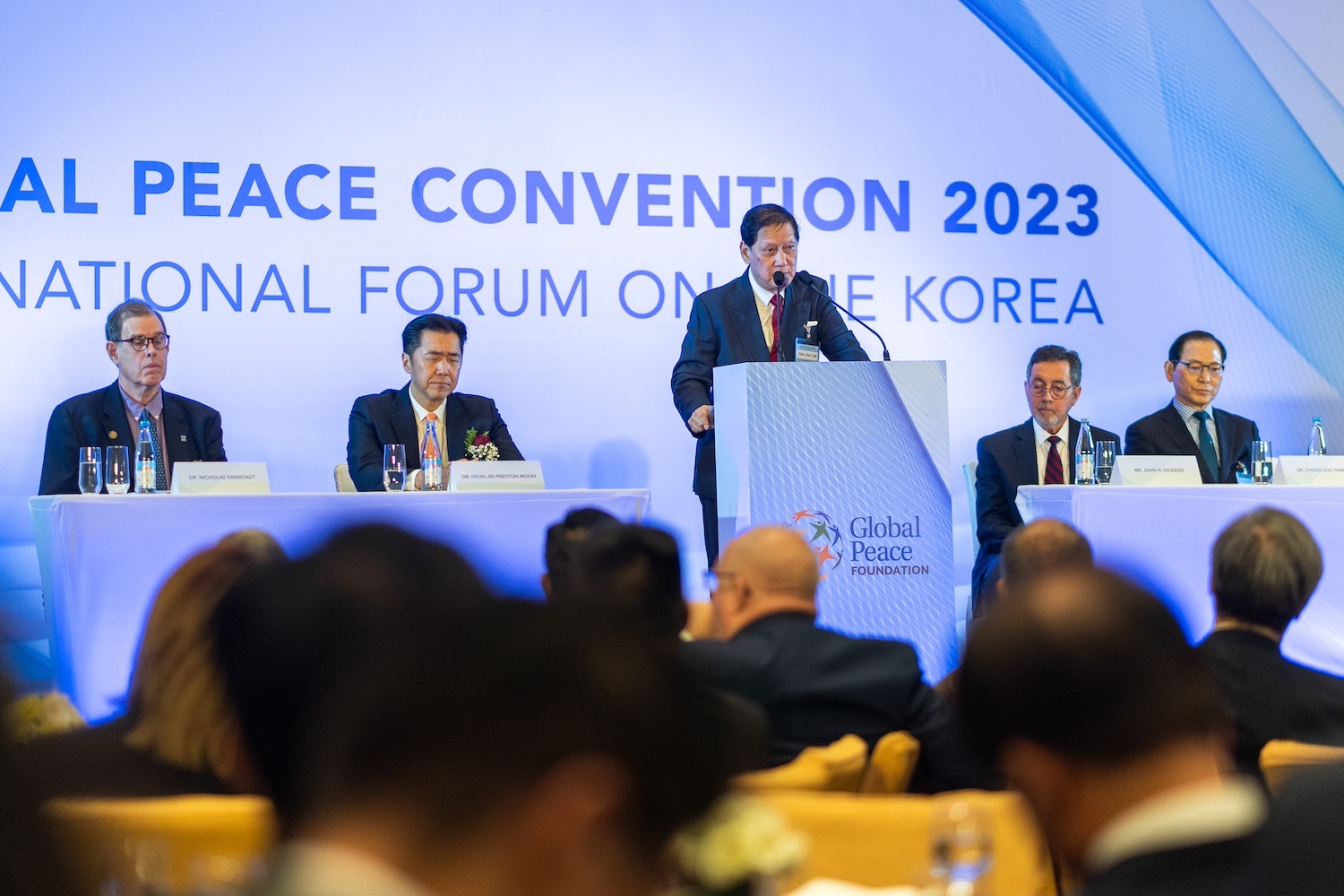
Global Peace Leadership Conference, Seoul, Korea 2012
“I WILL dance… I will dance… ” By itself, there is nothing exceptional about the statement. But when it is uttered by a visibly excited yet soft-spoken monk in a grey robe, you can’t help but take notice. And so it was at the Global Peace Leadership Conference in Seoul recently where politicians, religious and community leaders and representatives of non-profit organizations from all over the world gathered to debate the vision of a united Korea.
The Korean monk’s heartfelt response was to a question on how he would feel if South and North Korea reunited. It was recorded in a video shown during the conference. As Malaysia celebrates its 55th Merdeka Day, the division of North and South Korea should serve as a sobering reminder that unity should never be taken for granted.
In South and North Korea, brothers and sisters, and mothers and children, have been separated for more than 60 years. Their only hope is for their countries to be reunited so that they could at least hug their loved ones before it is too late. “I am getting old, I don’t have much time left,” an old South Korean woman said in the same video.
As pointed out by Global Peace Foundation founder and chairman Dr Hyun Jin Moon in his keynote address at the conference, the division of North and South Korea is “tragic.”

Global Peace Foundation Chairman Dr. Hyun Jin Moon
“Koreans share a unique homogeneous identity, language and a 5,000-year cultural history, yet these have not been sufficient to prevent our division or to provide a path towards reunification,” said the charismatic leader of the non-profit organisation that has made it its mission to promote world peace in line with its motto of “One family under God”.
He went on to say that the process of reunification should begin with a healthy debate on the attributes of a new united Korea, so that the outcome of reunification is defined clearly and endorsed fully by the Korean people.
One of the key challenges post-reunification will be integration. After decades of separation and economic and ideological differences, mistrust and discrimination will turn the Korean dream of a united nation into a nightmare.
Having gone through a similar experience, Malaysia has become a shining example to many South Koreans because of the unity shown by not only Malaysians in Sabah, Sarawak and the peninsula but also the various ethnic groups.
During meetings and conversations with Malaysian delegates attending the conference, many South Koreans marvelled at the integration in our country. Members of the Global Peace Foundation Korea, who visited Malaysia, have gone back to their country impressed with our unity in diversity. Malaysia, said Department of National Unity and Integration deputy director-general (planning) Ho Khek Hua who led the Malaysian delegation, can be a good model for the Koreans.
“Malaysia has gone through the experience in 1963 when the country was formed together with Sabah, Sarawak and Singapore. Our ‘reunification’ with Sabah and Sarawak continues till today.
“I have told the Koreans that Malaysia can share its model with them. They face the same challenges as Malaysia — how to bring the people together, how to integrate them.”
The people behind the Korea United campaign should take note of this piece of advice from Ho: “Reunification doesn’t mean everything is equal. Look for the common ground and come to some sort of an agreement.”
And that is the challenge facing the pro-reunification group. Will the monk get to dance in the not too distant future? Anyone who saw the commitment and passion shown by the South Koreans, who finished fifth in the recent London Olympics medals tally, and also the enthusiasm shown by the thousands who turned up for the Korea United Festival held after the conference, would be surprised if he didn’t.
As for the rest of us, raise the flag proudly and count our blessings.
This story was first published in the New Straits Times of Malaysia. Reprinted with permission.
**The Global Peace Festival Foundation (GPFF) was renamed Global Peace Foundation (GPF) in November, 2012.



